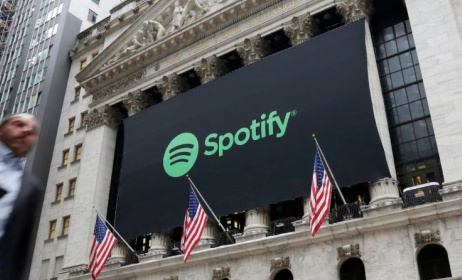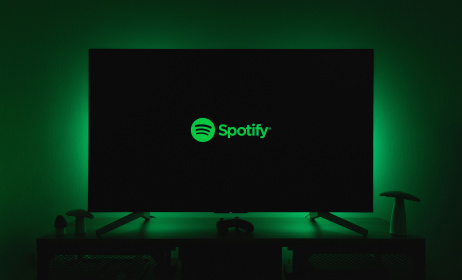Spotify is out of its depth with new policy
Streaming service Spotify last week announced a new policy directed at culling music that promotes hate speech from its promoted and algorithmic playlists. The policy further extends to artists who have participated in "hateful conduct".
 R Kelly is the first artist to have music removed from Spotify-curated playlists due to 'hateful conduct'.
R Kelly is the first artist to have music removed from Spotify-curated playlists due to 'hateful conduct'.
This after US musician R Kelly was the first casualty of the company's Hate Content and Hateful Conduct policy amid allegations that the R&B artist is the mastermind behind a sex cult as well as incidents of indecent sexual conduct dating back to the early 1990s. Apple Music and Pandora also followed suit and removed R Kelly from their playlists due to mounting pressure from social justice group Time's Up Now.
But Spotify’s new policy does not set out the exact criteria it will employ going forward and in the process has raised a number questions among its users.
“We believe in openness, diversity, tolerance and respect, and we want to promote those values through music and the creative arts,” the opening paragraph of the policy reads.
“This policy is designed to do that, consistent with our distinct roles in music and media – from distribution to promotion to co-creation. That’s why we do not permit hate content on Spotify, and remove it whenever we find it.”
Here Spotify has an issue with differentiating between 'content' and 'persona'. Grouping R Kelly's alleged sexual deviancy and his music is dubious. That would be like Netflix publicly saying that it doesn’t want anything to do with Mel Gibson, Roman Polanski or Wood Allen's films.
To uphold its policy, Spotify says it is consulting with various social justice groups such as the Southern Poverty Law Center, the Anti-Defamation League, Colour of Change, Showing Up for Racial Justice, Gays and Lesbians Alliance Against Defamation, Muslim Advocates, the International Network Against Cyber Hate as well as Spotify AudioWatch, which is the Swedish operation's internal content monitoring tool.
One question that has been raised is whether Spotify should align itself with the views of groups that have their own agenda to promote. Another is why Spotify is taking a censorship role when many of its users would prefer the company to be a service provider of musical content without an editorial stance.
“We don’t censor content because of an artist’s or creator’s behaviour, but we want our editorial decisions – what we choose to programme – to reflect our values,” the policy says.
In the case of R Kelly, the artist has been censored regardless of how Spotify tries to bend logic. Editorial decisions are inherently subjective, which is a main tenet of censorship. The above clause might as well read: "We don't really censor... But only depending on how we feel on a given day, and on what advocacy groups dictate to us when they have a bone to pick with the next publicly disgraced figure."
Spotify is also digging a rabbit hole for itself. Where does hateful conduct begin and end and what gauge should we be using to measure this? If tolerance and respect are core values at Spotify, then hip hop is in big trouble: millions of songs thrive on misogyny and negative attitudes towards women. What about Michael Jackson and allegations of paedophilia and Okmalumkoolkat's sexual assault case in Australia? Currently, Okmalumkoolkat's song ‘Gqi’ is still featured on the Gqom Powerhouse Playlist, which is curated by Spotify. Consistency would be impossible and it seems that some artists targeted by influential groups would find themselves in much hotter water than others. It's just inconceivable that Spotify would be able to police all its 'content' unless the company is pressured by external forces such as the aforementioned organisations.
It follows that Spotify could have published the policy so not to find itself in the bad books of these organisations. It would certainly be bad business practice to be branded an enemy of a social justice group. There's no other reason for a company on a rampant expansion drive such as Spotify to get involved in the R Kelly controversy. There is no business sense in that whatsoever.
Although it's highly possible that R Kelly is the miscreant that his accusers say he is, Spotify and other streaming platforms should try their utmost not to get involved in ideologically charged situations, although it's probably impossible for a company of its stature not to be drawn to various battlegrounds.
It must also be said that despite the questionable policy drafted by Spotify, the work that has been done by Time’s Up Now to highlight social injustice cannot be disqualified as an important movement. It must be commended for exposing sexual predators in the entertainment industry. But that doesn’t mean social justice organisations should burden private streaming companies with forwarding their agenda, as seems to be the case here. Judicial systems exist for a reason. Justice shall be served with or without 'playlist shaming'.
Music In Africa encourages freedom of speech and expression of diverse views. The views in this article are the author's and do not necessarily reflect those of the publication.



























Commentaires
s'identifier or register to post comments